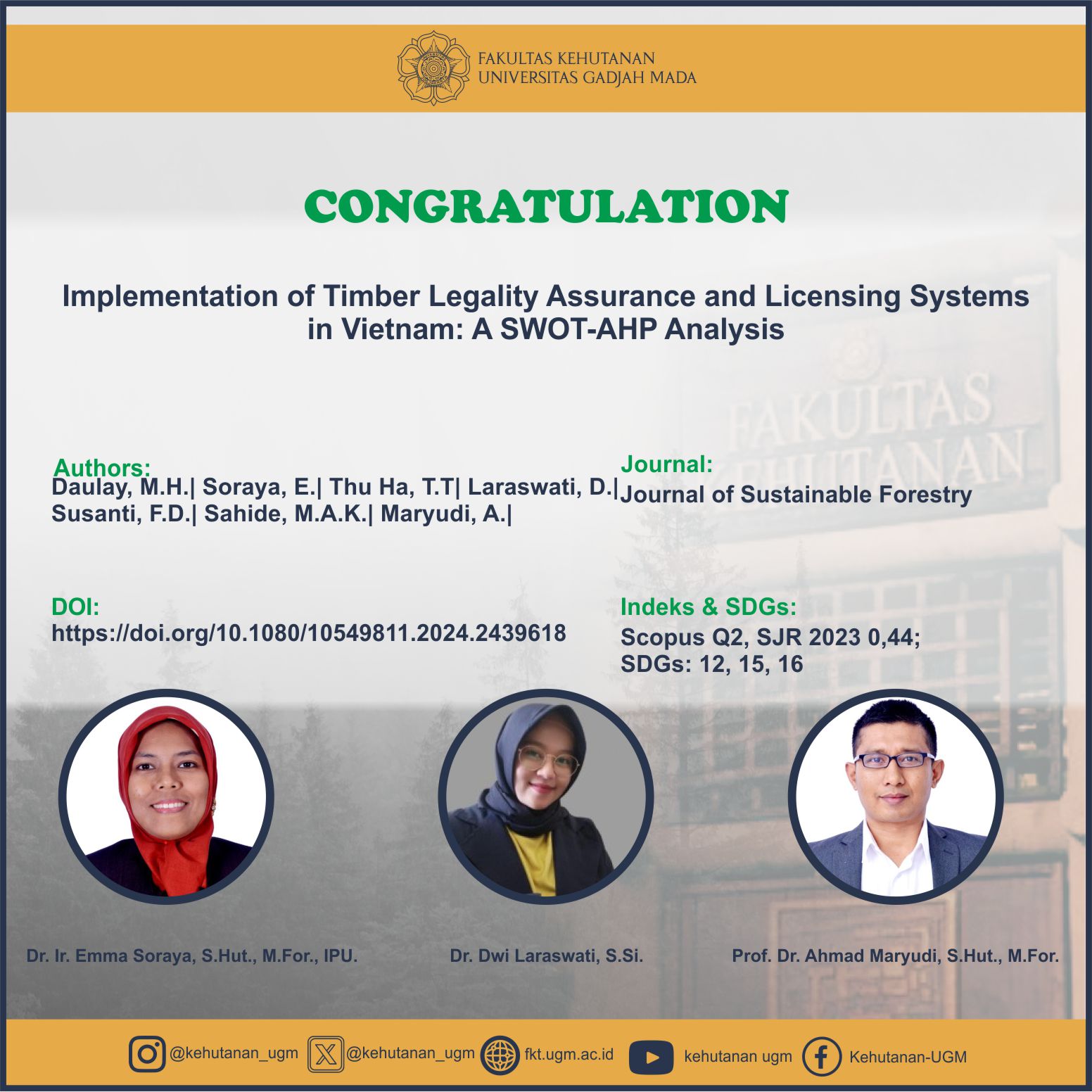
Abstract
The European Union (EU) established cooperation with timber exporting countries to fight illegal logging through the Forest Law Enforcement, Governance and Trade (FLEGT) Action Plan. FLEGT has gained increasing interest from several countries, including Vietnam, which has signed a bilateral Voluntary Partnership Agreement (VPA) with the EU. Central to the VPA is the implementation of a timber legality assurance system (TLAS) that ensures that only legal products are exported to the EU. Employing Strengths, Weaknesses, Opportunities, Threats – Analytic Hierarchy Process (SWOT-AHP) analysis, this paper identifies key factors that support or constrain TLAS implementation in Vietnam and ranks them based on their respective importance. The government might be persuaded to implement TLAS given the growing trends in timber legality policy in its main export destinations amidst the increasing environmental campaigns against trade in illegal timber. TLAS implementation is potentially enabled by the strong political commitment that has been translated into key programs dedicated to tackling illegal logging. However, our analysis shows that the potential adverse impacts of TLAS implementation on the timber sector could be one of the determining factors considering the high contribution of the sector to the national economy. Overall, our analysis points out that Vietnam is not completely ready to implement its TLAS in the foreseeable future.
SDGs:
SDG 12:Responsible Consumption and Production
SDG 16:Peace, Justice, and Strong Institutions
SDG 15:Life on Land
Link Dokumen:
Download
